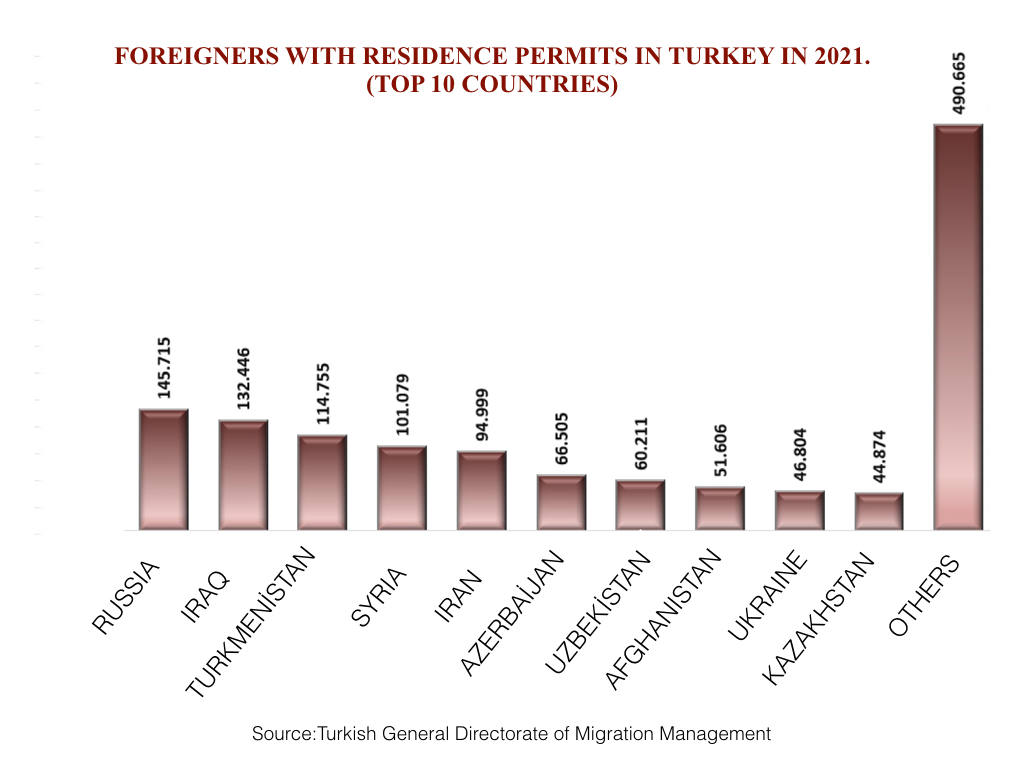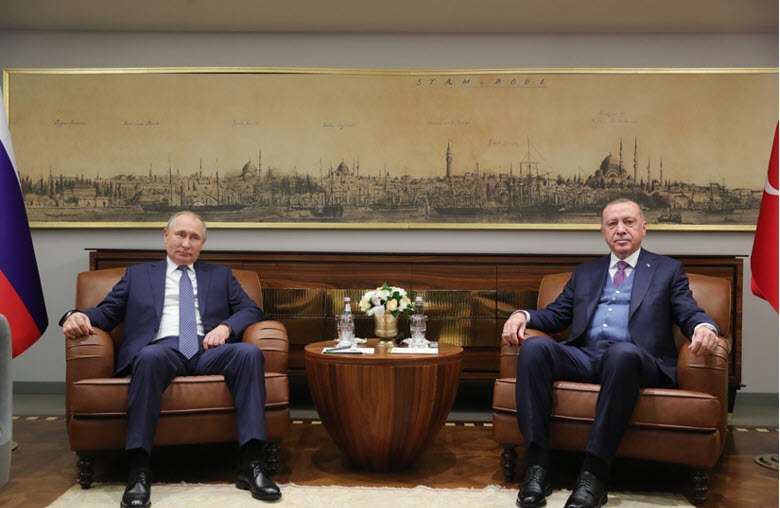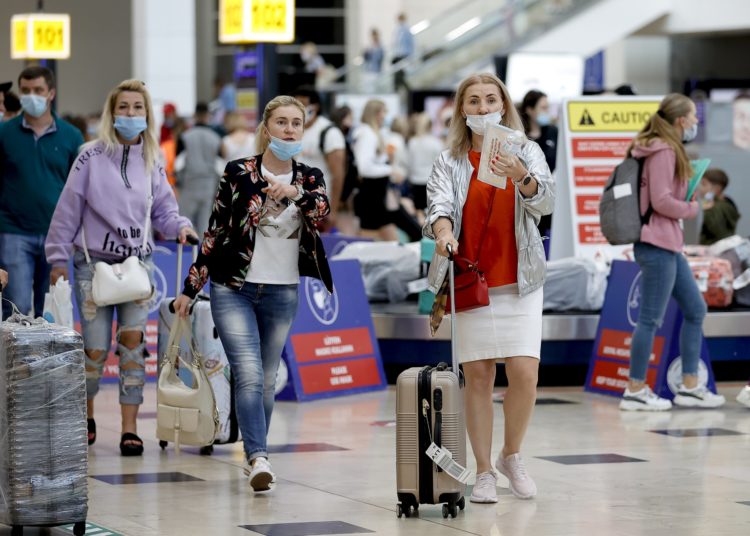Levent Kenez/Stockholm
Russians were the largest group of foreigners living in Turkey with residence permits in 2022, up from sixth place in 2021. Turkey is a safe haven for wealthy Russians in particular who had to leave Western countries due to sanctions imposed after Russia’s invasion of Ukraine. Likewise, Russians fleeing the war seem to prefer Turkey. The fact that the Turkish government has insistently and repeatedly declared that it will not participate in the Western sanctions on Russia has played an important role in the growing number of residence permits for Russians.
According to official statistics obtained by Nordic Monitor, there were a total of 1,349,559 foreigners with residence permits in Turkey in 2022, compared to 1,314,181 in 2020. The most common type of residence permit was a short-term permit granted to 941,290 people. Foreigners who own real estate in Turkey and tourists who extended their stay most frequently applied for short-term residence permits. There are 143,346 people in Turkey with student residence permits. Foreign nationals who are married to Turkish citizens or have children with them benefit from a family residence permit, which was issued to 100,398 people in 2022.

Russians made up the largest group of foreigners with residence permits in Turkey in 2022, numbering 145,715 by the end of the year, more than double the 65,121 of 2021. Russian nationals are followed by citizens of Iraq, Turkmenistan and Syria.
Turkish President Recep Tayyip Erdoğan apparently saw the opportunity to make a profit by offering Russians a lifeline to help overcome the restrictions and beat the sanctions. On the way back home from the NATO summit in Brussels In March 2022 he urged Russian businessmen who were facing global sanctions to move their facilities to Turkey.
Turkey also made it easy for foreigners to bring their money into the country. With a last-minute amendment in August 2022, the application process for Turkey’s Wealth Amnesty Law, which expired on June 30, was extended until March 31, 2023. The law covers the import of foreign assets such as gold and foreign currency into Turkey through a bank or intermediary institution as well as the physical movement of currency notes. Beneficiaries do not pay taxes on the assets they report. There is also no citizenship requirement for benefiting from the Wealth Amnesty Law. Customs documents are sufficient for cash brought into Turkey. For this reason, it is estimated that Russian and Iranian businessmen brought a significant amount of assets into Turkey. This money brought to Turkey was mostly used for real estate, business or gold purchases.
A Bloomberg article in September pointed out that mysterious flows of money into Turkey have risen to record highs, increasing by $5.5 billion in July alone, bringing the total for the first seven months of 2022 to $24.4 billion.
Facing serious challenges in the upcoming elections amid a troubled economy, Erdoğan has turned to Russia for help in boosting cash reserves, rehabilitating his battered image and offering consumers relief with deep cuts in the price of energy, Nordic Monitor reported in September.

Talking to reporters on his way back from a Balkans tour in September, Erdoğan revealed ongoing negotiations with Russian President Vladimir Putin about a discount on the price of natural gas. “Russia hasn’t imposed any sanctions on us. I had a talk with him about the price [of gas deliveries],” he told reporters. “If he approaches this positively, then this would be the ‘crème de la crème’ because our goal is to provide as much electricity and natural gas as possible to our citizens under more favorable terms.”
Last month Russia agreed to postpone a $20 billion payment of Turkey’s natural gas debt until next year. Many political observers think that ahead of the presidential elections in 2023, Putin presented Erdoğan with the financial assistance he needed to be re-elected.












